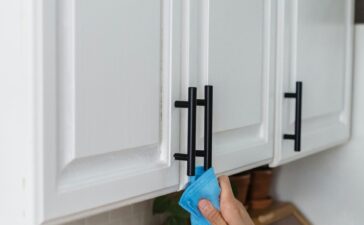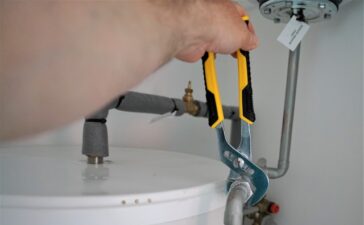Any pool area must be encircled by a fence that divides your swimming pool from your property, according to Australian and NSW pool safety guidelines. Although it is mandated by law, as the pool owner, you have complete control over the sort of fencing you install.
However, because of the variety of options available, it isn’t always an easy decision. As a result, it’s critical that you do your homework before making a selection.
In this guide, we’ll look at the most common types of pool fence on the market, taking into account important criteria like protection and style to help you discover the ideal design for your home.
How to Select the Best Fencing for Your Swimming Pool
Whenever it comes to pool fencing, today’s homeowners nearly have too many options. Choosing a type of pool fencing that passes Australian pool safety requirements while also complementing the style of your home is the most difficult task.

We don’t cut corners when it comes to the level of security we provide, and we also understand that pool fencing must blend in with its environment.
What are the Different Types of Pool Fencing?
In this part, we analyse various types of pool fence, examining the benefits, downsides, and distinguishing characteristics of each to assist you in selecting the best model.
Glass Pool Fencing
There are 2 types of glass pool fencing: frameless and semi-frameless.
They’re both as modern and contemporary in appearance as the other, but they’re installed differently.
Glass panels are connected to stainless steel or aluminium poles that connect the glass windows in semi-frameless pool fencing, whereas glass panels are put into spigots attached to the concrete at the bottom of the barrier in frameless pool fencing.
Frameless glass fencing, in particular, is becoming increasingly popular since it provides clear views of your swimming pool and is the ideal method to keep an eye on young kids playing in the pool while also ensuring you don’t miss out on any memorable family moments.
When compared to other types of fencing, frameless glass pool fencing solutions are more expensive, and there aren’t many more elegant options available as a pool barrier.
We also exclusively use fully certified toughened glass, putting safety ahead of all other considerations. This implies that when it comes to glass pool fencing, durability and security are no longer concerns. However, you should still use a pool fence inspection service in Melbourne.

Metal Tubular Fencing
There are two types of metal swimming pool fencing: aluminium and steel. To the uneducated eye, steel and aluminium pool fencing may appear to be identical, but there are some important distinctions. Steel is a much heavier fence material than aluminium, so it’s not a good DIY option for a swimming pool in your backyard.
While an aluminium pool is lighter, we would never propose pool fence installation as a do-it-yourself project due to the pool safety standards that must be followed, and also the skill level required for installing fence panels and water gates securely.
One of the most important advantages of aluminium pool fencing is that this is exceptionally long-lasting, so you won’t have to worry about rust or corrosion. It is also quite easy to manage in the long run as a result of this.
Steel and Aluminium pool fencing are also thought to provide a swimming pool and garden area a more traditional look.
There are several design choices to choose from when it relates to steel and aluminium fences. Loop and flat top finishes are by far the most popular.





